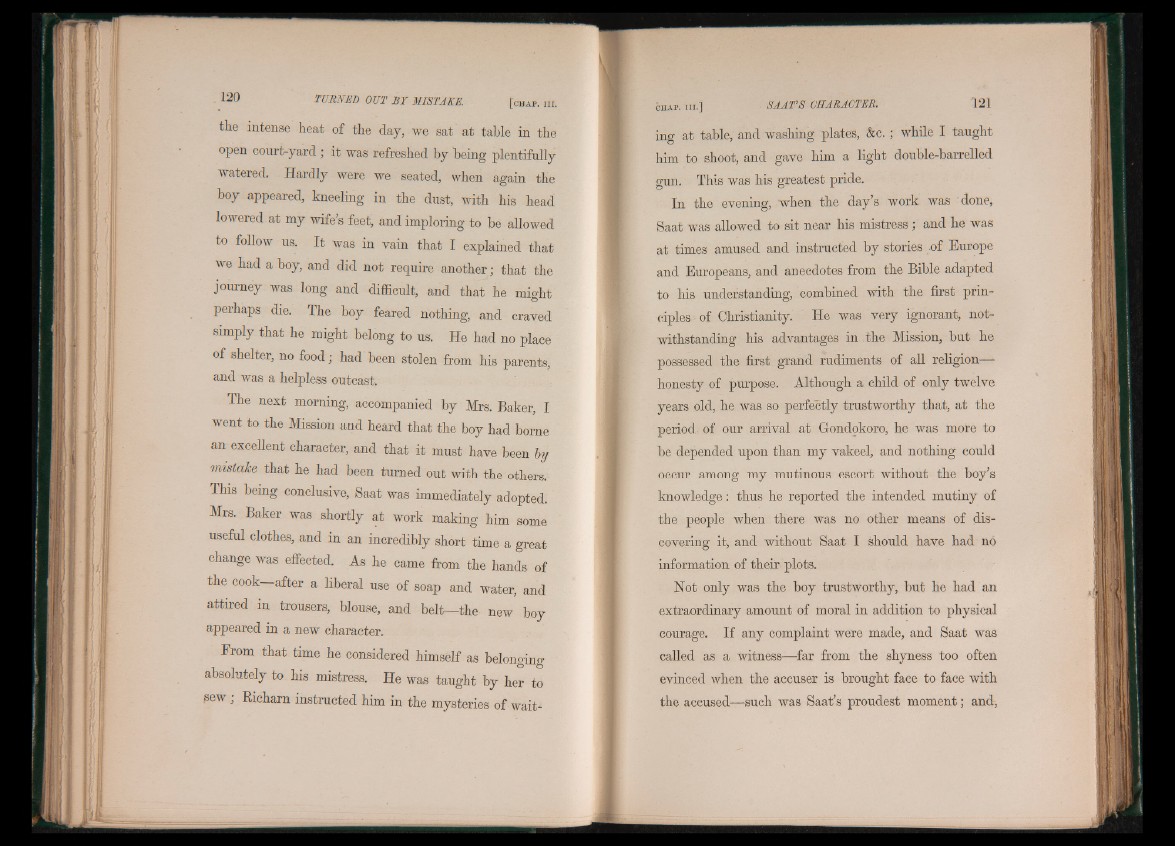
the intense heat of the day, we sat at table in the
open court-yard ; it was refreshed by being plentifully
watered. Hardly were we seated, when again the
boy appeared, kneeling in the dust, with his head
lowered at my wife’s feet, and imploring to be allowed
to follow us. I t was in vain that I explained that
we had a boy, and did not require another; that the
journey was long and difficult, and that he might
perhaps die. The boy feared nothing, and craved
simply that he might belong to us. He had no place
of shelter, no food; had been stolen from his parents,
and was a helpless outcast.
The next morning, accompanied by Mrs. Baker, I
went to the Mission and heard that the boy had borne
an excellent character, and that it must have been by
mistake that he had been turned out with the others.
This being conclusive, Saat was immediately adopted.
Mrs. Baker was shortly at work making him some
useful clothes, and in an incredibly short time a great
change was effected. As he came from the hands of
the cook—after a liberal use of soap and water, and
attired in trousers, blouse, and belt—the new boy
appeared in a new character.
From that time he considered himself as belonging
absolutely to his mistress. He was taught by her to
sew; Kicham instructed him in the mysteries of waiting
at table, and washing plates, &c.; while I taught
him to shoot, and gave him a light double-barrelled
gun. This was his greatest pride.
In the evening, when the day’s work was done,
Saat was allowed to sit near his mistress ; and he was
at times amused and instructed by stories .of Europe
and Europeans, and anecdotes from the Bible adapted
to his understanding, combined with the first principles
of Christianity. He was very ignorant, notwithstanding
his advantages in the Mission, but he
possessed the first grand rudiments of all religion—
honesty of purpose. Although a child of only twelve
years old, he was so perfectly trustworthy that, at the
period, of our arrival at Gondokoro, he was more to
be depended upon than my vakeel, and nothing could
occur among my mutinous escort without the boy’s
knowledge: thus he reported the intended mutiny of
the people when there was no other means of discovering
it, and without Saat I should have had no
information of their plots.
Not only was the boy trustworthy, but he had an
extraordinary amount of moral in addition to physical
courage. If any complaint were made, and Saat was
called as a witness—far from the shyness too often
evinced when the accuser is brought face to face with
the accused—such was Saat’s proudest moment; and-,